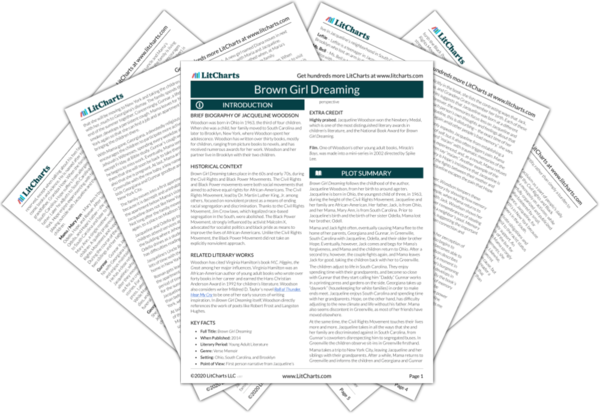During class one day,
Jacqueline’s teacher asks her to read aloud. Instead, Jacqueline recites the whole story of
The Selfish Giant. Everyone is impressed, and Jacqueline does not know how to explain her propensity for telling and memorizing stories, but she realizes it is a gift.
